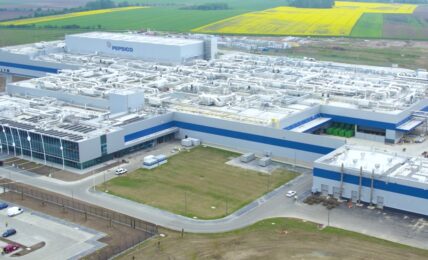Wells Fargo announced that it has entered into its largest single renewable energy purchase agreement to date, sufficient to supply approximately 8% of the company’s annual global electricity needs.
Under the new 20-year purchase agreement with Duke Energy and NextEra Energy, Wells Fargo will consume 100% of solar energy produced by the North Carolina-based 58 MW Blackburn Solar Project, under Duke Energy’s Green Source Advantage (GSA) program. The 600-acre solar farm, scheduled to come inline in 2022, will be developed, owned, and operated by a subsidiary of NextEra Energy Resources.
Nate Hurst, head of Social Impact and Sustainability at Wells Fargo, said:
“The development of renewable energy projects close to employee and customer centers is one way Wells Fargo is working to meet our net-zero greenhouse gas emissions goal in a way that also contributes to the communities where we live and work. Investing in solar energy development in North Carolina will support job creation, tax revenue, reduced carbon emissions, and grid resiliency. We appreciate the collaboration with Duke and NextEra to advance our enterprise sustainability goals in a way that benefits the local economy.”
The agreement marks a step towards the fulfilment of one of Wells Fargo’s renewable energy goals, launched in 2016. The company achieved the first part of this commitment in 2017, reaching 100% of operations powered by renewable energy through the purchase of 2 million megawatt-hours of renewable energy certificates (RECs). It is now pushing forward on the second part of the commitment, which involves transitioning to a higher mix of long-term renewable energy contracts and significantly increasing deployment of on-site generation. Last month, the company launched a new series of sustainability commitments, including setting a net zero 2050 target, including financed emissions.
Richard Henderson, head of Wells Fargo’s Corporate Properties Group, said:
“Leveraging our annual energy spend to advance green infrastructure development in the U.S. and create new revenue streams for communities is one way we are helping contribute to more sustainable, equitable, and resilient communities. We will continue to look for opportunities to advance environmental and social sustainability through our operations as Wells Fargo drives toward its ambitious climate goals.”
The post Wells Fargo Enters its Largest Yet Renewable Energy Deal appeared first on ESG Today.


